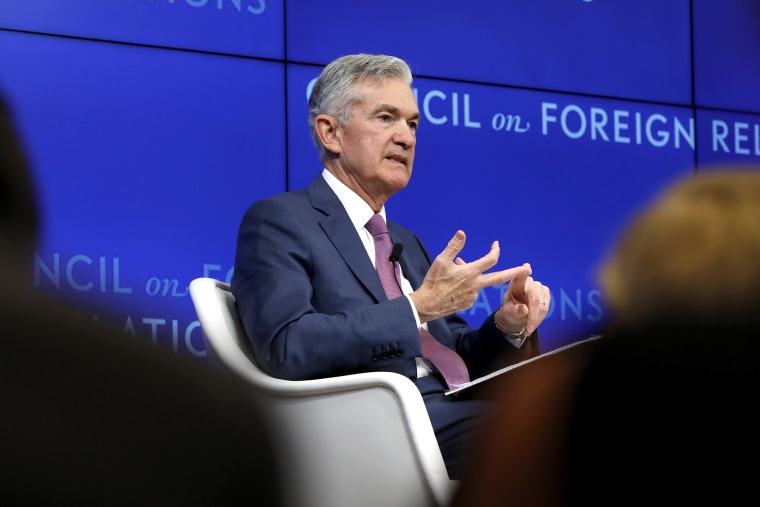Federal Reserve Chairman Jerome Powell stressed the central bank’s independence in a speech Tuesday that comes amid continuous pressure from the White House to cut interest rates.
He spoke during a event at the Council on Foreign Relations in New York that investors were watching closely for clues about the direction of monetary policy.
His remarks mirrored those from last week’s Federal Open Market Committee meeting, and he emphasized that policy is under review — though he did not overtly tip his hand that a rate cut could be ahead. Markets are currently pricing in four quarter-point reductions by April 2020.
“Since the beginning of the year, we had been taking a patient stance toward assessing the need for any policy change,” he said. “We now state that the Committee will closely monitor the implications of incoming information for the economic outlook and will act as appropriate to sustain the expansion, with a strong labor market and inflation near its symmetric 2 percent objective.”
However, he emphasized that politics won’t be a consideration.
“The Fed is insulated from short-term political pressures — what is often referred to as our ‘independence,’” Powell said in prepared remarks. “Congress chose to insulate the Fed this way because it had seen the damage that often arises when policy bends to short-term political interests. Central banks in major democracies around the world have similar independence.”
Following the speech, Powell participated in a question and answer session that comes at a critical time for the Fed.
Powell noted that trade pressures and further downward revisions in global growth prospects have caused a rethink of policy.
He addressed the changing set of conditions since the Fed met in early May and noted that trade pressures and further downward revisions in global growth prospects have caused a rethink of policy.
“What happened is things have changed since May 1, significantly,” he said. “The global risk picture has changed.”
President Donald Trump has been pressuring Powell and his colleagues to loosen policy, saying lower rates would give an added boost to an economy and stock market that have grown strongly during his time in the Oval Office. Economists, though, say the situation is more serious. A growing number on Wall Street sees signs of a slowdown in the bond market that could turn into a recession over the next year or so.
At its policy meeting last week, the FOMC chose not to adjust its target interest rate. However, statements by Powell afterward combined with revised economic projections and future interest rate estimates tipped off markets to a possible cut ahead.
Powell indicated, though, that policy decisions will be based on a broad scope of information.
“We’re looking at the overall situation and wanting to see more, frankly,” he said. “I think it’s important not to overreact in the short term to things that happen to be temporary or transient.”
Speaking on the economy, Powell reiterated that inflation continues to run below the Fed’s 2 percent objective. He also said risks have grown to the Fed’s outlook and that a belief in May that rates should hold steady has come into question.
“The crosscurrents have reemerged, with apparent progress on trade turning to greater uncertainty and with incoming data raising renewed concerns about the strength of the global economy. Our contacts in business and agriculture report heightened concerns over trade developments,” he said.
The prepared remarks did not address monetary policy, though Powell did say a recent Fed forum in Chicago showed a jobs market that is getting stronger. The Chicago event was part of an ongoing effort by central bankers to gather input on how well they are using policy to implement their goals and what should be done in the future.
“What we heard, loud and clear, was that today’s tight labor markets mean that the benefits of this long recovery are now reaching these communities to a degree that has not been felt for many years,” Powell said.
“We heard that many people who, in the past, struggled to stay in the workforce are now getting an opportunity to add new and better chapters to their life stories. All of this underscores how important it is to sustain this expansion,” he added.
The unemployment rate is at a 50-year low of 3.6 percent, though inflation, the other part of the Fed’s dual mandate, has consistently missed the target goal.
